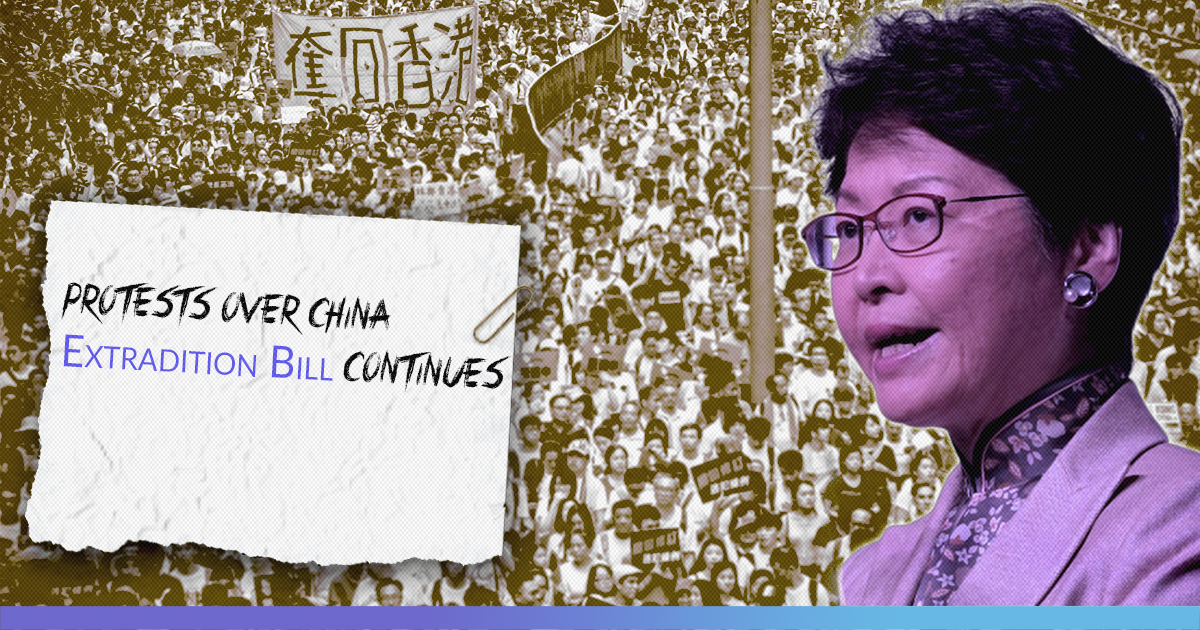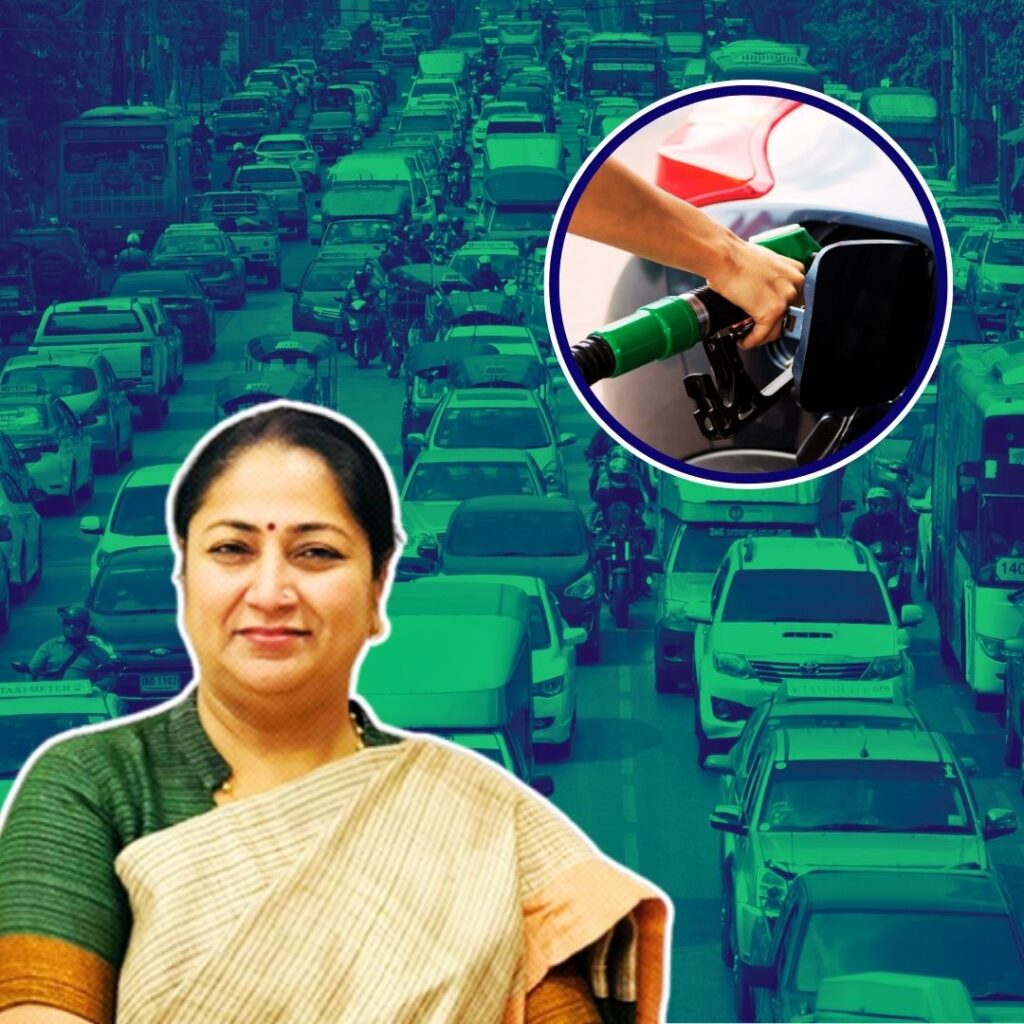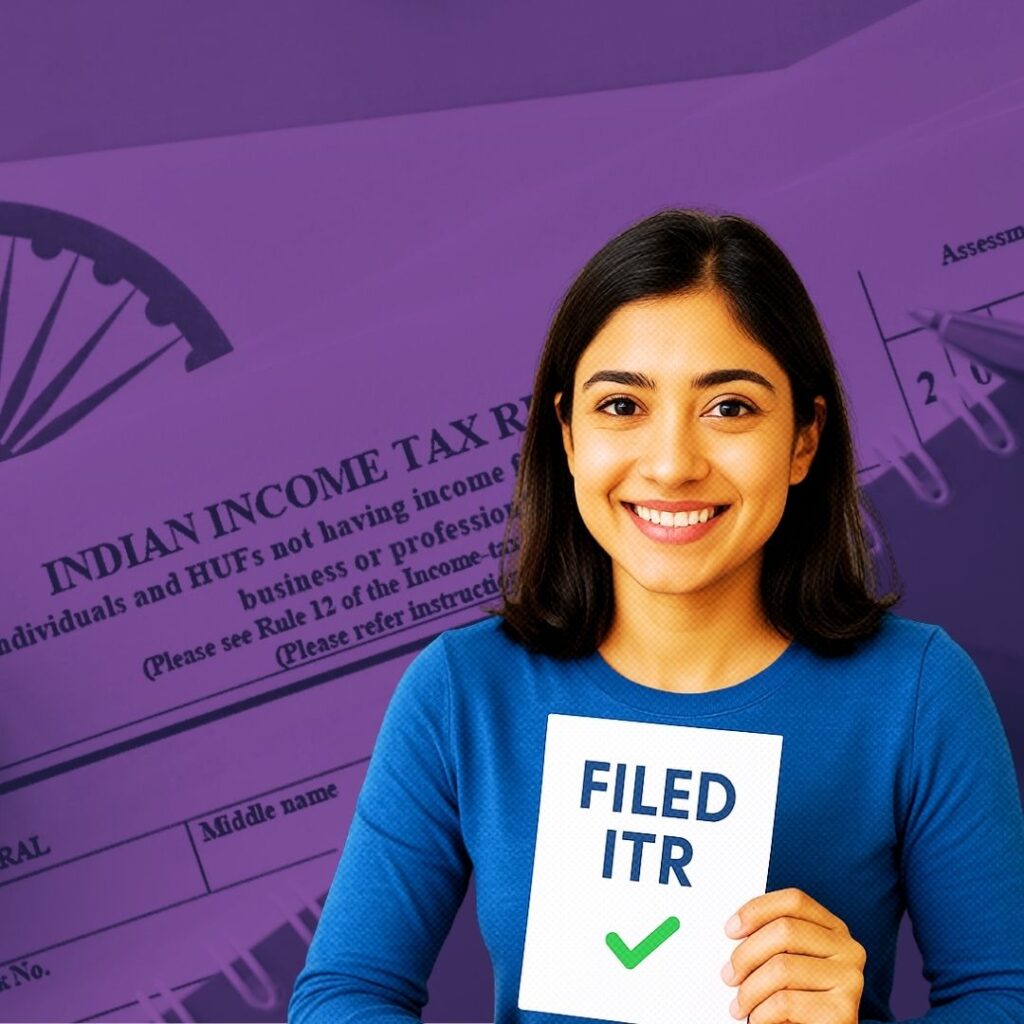Hong Kong Chief executive Carrie Lam has decided to withdraw the extradition bill which gave China a higher authority over Hong Kong’s judiciary thus diluting its semi-autonomous status.
The controversial bill presented in February 2019 had sparked massive protest across the city of Hong Kong. On June 9, one million protestors thronged the government headquarters against the bill. On June 15, Lam issued a reversal order indefinitely delaying it. But she didn’t withdraw the bill formally.
Hong Kong’s benchmark Hang Seng Index jumped after the report, trading up about 3.3 per cent. The property index also jumped six per cent, reported NDTV.
Lam had earlier told business leaders that she now has “very limited” room to resolve the crisis. The statement comes after reports of Lam’s resignation came up. China had even backed Lam’s resignation after an audio recording emerged of her saying she wanted to quit over three months of unrest in the semi-autonomous city. But she refused the reports of her resignation saying she never actually put forth her resignation before the central people’s government.
As per the report, Lam told the business leaders that the unrest has become a national security and sovereignty issue for China amid rising tensions with the United States.
Hong Kong: Protestors Turn Violent, Occupy Govt Headquarters
A group of protesters, breaking away from a peaceful protest, on Monday (July 1, 2019) stormed and vandalized the Legislative Council building in Hong Kong.
The Logical Indian ಅವರಿಂದ ಈ ದಿನದಂದು ಪೋಸ್ಟ್ ಮಾಡಲಾಗಿದೆ ಮಂಗಳವಾರ, ಜುಲೈ 2, 2019
Millions Protested For Months
On June 15, nearly two million took part in a mass protest against the controversial extradition bill in Hong Kong – that would have allowed suspects to be sent to mainland China for trial, according to organisers. The police had termed the gathering as the largest protest in Hong Kong’s history.
Following the protests, the bill was later suspended. Chief Executive Lam, indicating that the bill would not be revived during the current legislative session, had apologised for the turmoil surrounding the bill. “If we don’t have confidence from the people, we will not proceed with the legislative exercise again,” Lam had said.
However, the protests had continued despite the suspension of the bill. Protesters seeking the ouster of Chief Executive Lam had warned to escalate demonstrations if the bill was not permanently withdrawn from the Legislative Council.
Many critics see the bill as a threat to the rule of law in the former British colony. Currently, Hong Kong enjoys greater autonomy and freedom than mainland China under the principle of “one country, two systems”. Under “one country, two systems”, Hong Kong has its own legal and economic systems and has more vigorous protection of civil liberties than China.
China had even backed Lam’s resignation after an audio recording emerged of her saying she wanted to quit over three months of unrest in the semi-autonomous city. But she refused the reports of her resignation saying she never actually put forth her resignation before the central people’s government.
What Is The Extradition Bill?
The amendment to the extradition bill was formally introduced in April, and it seeks to update existing laws that govern extradition processes and legal assistance between Hong Kong and other jurisdictions. The bill seeks to amend the Fugitive Offenders Ordinance and the Mutual Legal Assistance in Criminal Matters Ordinance.
Currently, Hong Kong has mutual extradition agreements with jurisdictions of 20 countries and provides legal assistance to 32 countries.
The existing Fugitive Offenders Ordinance was passed just ahead of the 1997 handover of Hong Kong to Chinese sovereignty, prohibits extradition and legal assistance to the government of the People’s Republic of China.
Also Read: Hong Kong Will No Longer Provide Visa-On-Arrival For Indians, Know About It And The New Guidelines











